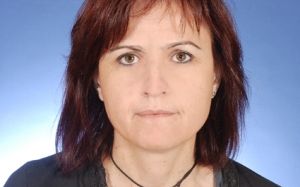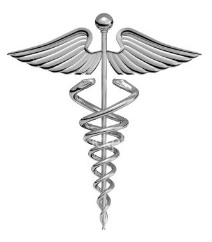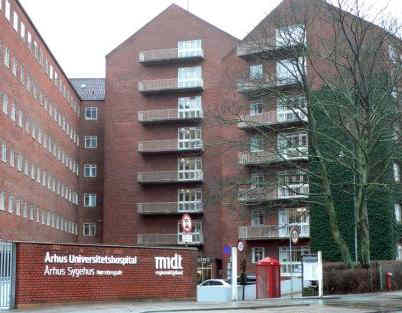EAUN Fellowship report

I have been working as a nurse in different hospitals since 1997. In May 2013, I completed my MSc in primary health care and have been working for the Department of Urology at Kostantopoulio Hospital in Greece since 2005.
Healthcare in Greece has its roots in ancient Greek civilization. Although provided by health insurers, recent austerity measures have unfortunately resulted to citizens themselves directly contributing to the cost of their medications.
Our hospital is located in the capital city of Athens, one of the world’s oldest cities with a recorded history that spanned more than 3,400 years. It is a 400-bed hospital and employs more than 1,000 workers. The Urology Department has 24 beds with about 8000 admissions every year. The Department consists of an outpatient clinic, a urology ward for adults, two operating rooms, a stone treatment centre and emergency room.
The hospital employs eight urology professors and serves as a training centre for six residents in urology. The specific fields of interest of the professors include prostate, bladder, renal and testicular cancers and stone treatment of the urinary tract. Among the department’s major surgical procedures are radical prostatectomy, suprapubic prostatectomy, radical nephrectomy, partial nephrectomy, pyeloplasty, ureteroscopy, TUR-BT and TUR-P. The nursing team, led by a senior urology nurse and a ward manager, consists of three RNs and eight assistants with each member responsible for several care programmes.
In the outpatient clinic, more than 3,000 patients are examined every year. The activities are subdivided in various procedures such as follow-up care in prostate cancer, BPH, bladder cancer, catheter management and endoscopic examination of the bladder. Also noteworthy is hospital’s Emergency Room department with provides first aid for urological emergencies 24 hours a day. Committed to providing high-quality care, the hospital also serves as a training hospital for medical and nursing students.
Fellowship programme
I have applied for the EAUN fellowship due to various reasons, one of which is to continuously educate myself through congresses, seminars and special courses. This programme was the perfect opportunity to personally observe how an organised healthcare system in Northern Europe works. Moreover, during the last three years, Greece is reforming and updating its healthcare system, a development that is considered as one of the most extensive in the world. Thus, I wanted to visit a widely recognised centre abroad to acquire further knowledge which may help the ward where I work.
Host institution
Skejby Hospital has excellent facilities and most doctors and nurses speak English. The Danish health service is financed through income tax, so medical treatment in Arhus University Hospital is available to all Danish residents free of charge. The Department of Urology is highly specialised and has modern equipment matched with efficient organisation. The Urology Department has 30 beds and around 10,000 outpatient visits per year. The staff is deals with a wide range of medical conditions, such as stoma care, urodynamics and palliative care. The Urology Department also offers robotic urology and is deeply involved in developing cryoablation therapy for urological cancers. Lastly, there is a highly specialised paediatric department.
My fellowship programme, from June 10 to 20 this year, consisted of the following:
Tuesday, 10 June
- Welcome and introduction to the Department of Urology, AUH
- Following a nurse of the prostate cancer team
Wednesday, 11 June
- 5th Danish Post EAUN meeting
- Attendance the educational meeting
Thursday, 12 June
- Neuro-urology with the nurse Annette Hjuler to observe urodynamic investigation
Friday, 13 June
- Urolithiasis/stents
- visiting the operating theatre
Monday, 16 June
- Visiting the outpatient clinic with prostate cancer team
Tuesday, 17 June
- Prostatectomy from admission to discharge in 24 hours with prostate team
Wednesday, 18 June
- Uro-stoma-day
Thursday, 19 June
- Incontinent and Urodynamic
- Following a nurse of the Acute team
Friday, 20 June
- The Urology Box: discharge – the transition between home care and tertiary hospital
The ward
The ward nurses specialize in different fields like prostate team, prostate cancer team, bladder cancer team etc. With high quality nursing care as their goal, it was really important to keep the patients in the hospital in a short period as possible. After the first day of hospitalization, they cooperated with the hospices, where very severe cases were treated, as well as home nurses who serve the patient who were discharged from hospital.
The ward nurses helped me a great deal, patiently explaining their routine procedures and how they organize patients’ care. They are responsible for two to four patients and they are closely involved in the details and special needs of the patients, which is in sharp contrast with my experience in Greece. There are fewer nurses in Greek wards for every shift, and the patient’s family is closely involved in patient care, and this is partly due to the closer bonds in a typical Greek family.
EAUN Day in Denmark
I had the opportunity to attend the EAUN Day, which was held in English. The event enabled me to enrich my knowledge in various topics, such as the upcoming PhD projects about the effects of heavy smoking and alcohol cessation intervention in radical cystectomy.
Uro-stoma day
The stoma nurse specialist Ingrid Søndergaard took care of a patient with stoma after a radical cystectomy. Her duty was to demonstrate the procedure and provide advice and all the necessary equipment until the patient’s next appointment, which was in four months. The role of the nurse is critical since the impact of this surgery can be overwhelming and may cause distress, fear and feelings of hopelessness. It can take time for some patients to come to terms with the way they look and function. The nurse in charge is tasked not only to respond to the patient’s concerns but also to enable the patient to get used to the new equipment and its function.
Outpatient clinic
The outpatient clinic is staffed with 10 nurses, again working in various teams such as the prostate (which I observed), bladder and kidney teams. The nurse is responsible for briefing a patient who had been diagnosed with prostate cancer in another hospital, and was referred to the department for surgery. She arranges a meeting between the urologist and the patient for them to discuss a planned date for the surgery. Thereafter, the nurse provides a thorough briefing to the patient about the urinary system, surgery and to respond to questions they might have.
Big surprise
Aarhus is a small, peaceful and green city by the sea. Known as Denmark’s second largest city it has both the atmosphere of a cosmopolitan city while retaining a ‘small town charm’ with its wonderful green areas. Around three hours away by bus from Copenhagen, the entire city is clean and well-organized, making walking or cycling an excellent and enjoyable way to get around.
One of the biggest surprises I had during my visit to Denmark was when I met the quality and risk manager of the Orthopedic Surgery, Rena Christou El-Zeinab, a Greek-Cypriot. We enjoyed our talks and gave me some handy tips. Most importantly, it was a pleasure to talk in my mother tongue in Denmark! Special thanks to Randi who arranged the meeting with Rena Christou.
All in all, my visit to Aarhus Hospital was fulfilling, educative and has definitely influenced the way I think about the role of technology and nursing care, and their impact on patients. There are big differences between the working environment in Denmark and Greece but I am optimistic that the quality of medical care in Greece will one day improve and measure up to these high standards.
I am thankful to the EAUN for the chance to have a well-organised fellowship in another European urology department. My thanks also to all I’ve met in the department and who provided assistance, including Bente Thoft Jensen, Erika Grainger, Tina Schwennesen, Annette Hjuler, Ingrid Søndergaard and Rena Christou EL-Zeinab.
Vasiliki Katsarou
Clinical Nurse (MSc)
Konstantopoulio Hospital
Nea Ionia, Athens (GR)
vkatsarou@hotmail.gr



